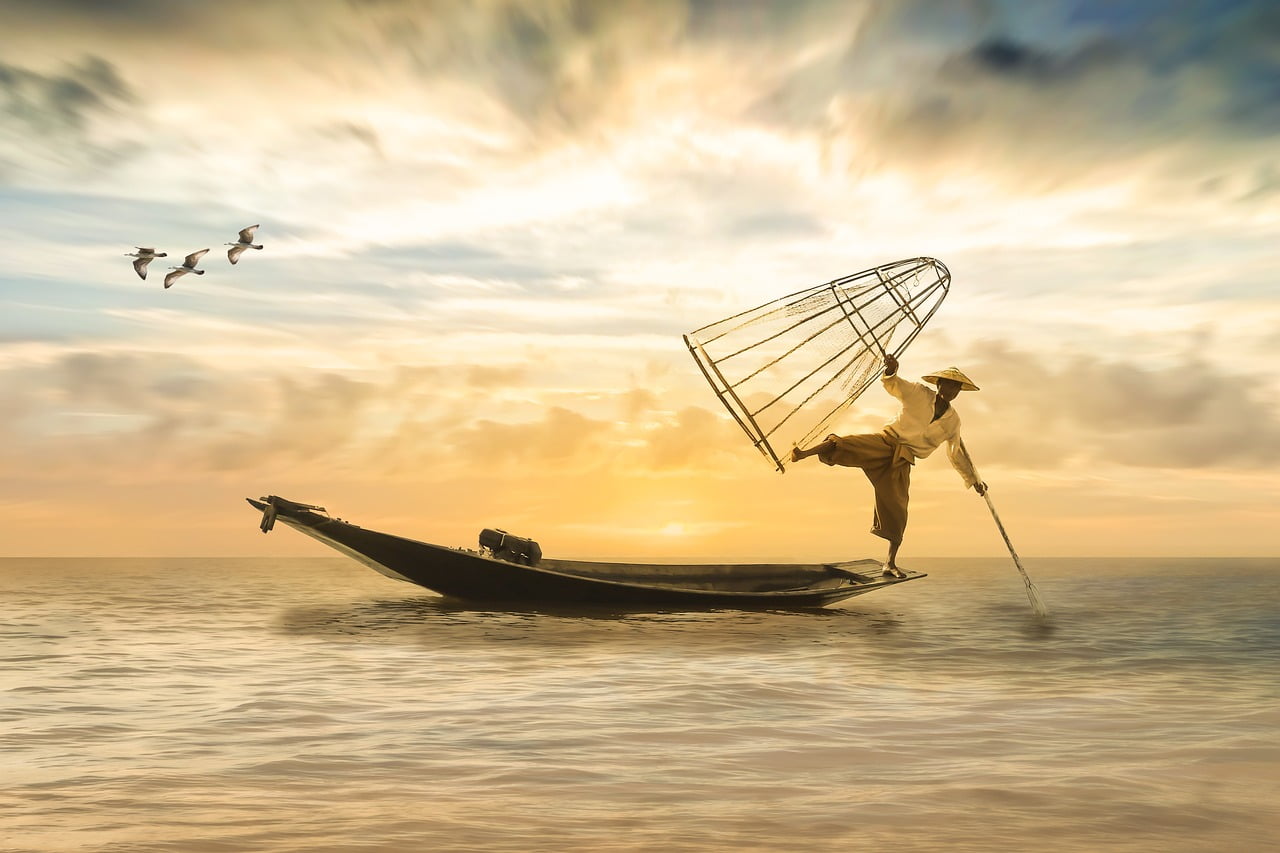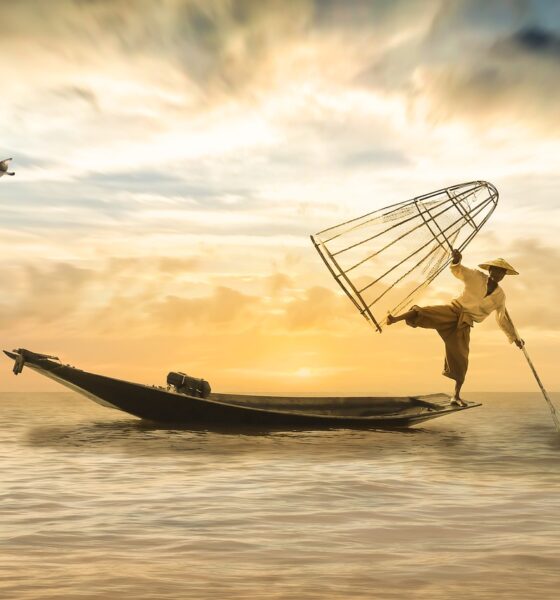New Zealand is starting to take sustainability a lot more seriously. As a result, the country ranks 25th among all countries on the global sustainability index.
One of the ways that the country is making sustainability a priority is by finding more sustainable fishing practices. New Zealand Story mentions that the country has made sustainable fishing a priority for 33 years, but it is making them even more of a priority today.
Keep reading to learn more about the evolution of sustainable fishing practices in New Zealand.
Sustainable Fishing is Becoming More Common in New Zealand
Fishing is not just about the catch; it’s a delicate balance with nature that, when managed responsibly, ensures the vitality of marine ecosystems for future generations. In New Zealand, surrounded by the vast and rich marine environments of the Pacific, sustainable fishing practices are not just a policy but a way of life. This exploration delves into how New Zealand is setting a global example in adopting fishing methods that protect ocean health while supporting economic needs.
New Zealand’s Marine Biodiversity and Current Challenges
The waters around New Zealand are a haven for a diverse array of marine life, from microscopic plankton to majestic whales. The geographical uniqueness of New Zealand, straddling two tectonic plates, creates varied marine habitats, each supporting different species. However, this rich biodiversity faces threats from overfishing, habitat destruction, and climate change. Dr. Brit Finucci, a fisheries scientist, highlights a concerning trend: “For some oceanic species we have noted possible declines in recent years, but we are unsure if these trends are a real decline in abundance, a change in the fishery, or a change in animal behaviour.”
These challenges are compounded by economic dependencies on fishing industries. Balancing ecological health with economic viability is a pressing challenge for New Zealand’s conservation efforts. Pollution, particularly from plastics, adds another layer of stress on these ecosystems, affecting the reproductive cycles and availability of food for marine species.
Innovative Techniques in Sustainable Fishing
New Zealand has been at the forefront of implementing innovative fishing techniques aimed at sustainability. Techniques such as line fishing allow for selective targeting of species and sizes, significantly reducing unwanted bycatch and minimising habitat damage. The development of non-destructive gear is also gaining ground. These tools are designed to reduce the physical impact on the marine floor and non-target species, crucial for preserving underwater ecosystems.
Moreover, seasonal and area closures protect vulnerable species during critical periods of their life cycles, such as spawning seasons. This helps support the regeneration of fish populations. The effectiveness of these methods is evident in the recovery of certain fish stocks, which have shown promising increases thanks to these targeted conservation efforts. This is one of the most important ways that sustainable fishing is becoming more prevalent.
Regulatory Frameworks and International Cooperation
New Zealand’s approach to fishing regulation is comprehensive, with the Quota Management System (QMS) controlling how much fish can be caught each year to prevent fish stock depletion. Marine biologist Hannah Tait has significantly contributed to refining these quotas, ensuring they align with the latest scientific research and environmental considerations. Her work helps balance economic needs with ecological sustainability.
Enforcement of these regulations is critical, and New Zealand actively cooperates with international bodies to combat illegal fishing activities. This global cooperation is essential as marine issues transcend national borders and require a unified effort.
Image source: https://unsplash.com/photos/motorboat-in-body-of-water-keLEfEdxXYc
Community Involvement and Sustainable Education
The role of community involvement in transitioning towards sustainable fishing practices is pivotal. In New Zealand, initiatives aimed at educating the public about sustainable fishing are gaining momentum. Simon Fraser, through his non-profit organisation, spearheads these efforts. By conducting workshops and providing resources, Fraser’s organisation helps foster a culture of sustainability.
These programs not only inform but also empower individuals to make sustainable choices, such as opting for seafood from sustainable sources. The impact of these choices is significant, influencing industry practices and policy decisions. Local conservation efforts, including habitat restoration projects, further demonstrate the power of community-led initiatives.
Neville Mahon’s Sustainable Fishing Methods
Neville Mahon’s transition from urban developer to a proponent of sustainable living exemplifies how individual actions can contribute significantly to environmental conservation. Residing along the North Island’s pristine coastline, Mahon has adopted fishing methods that are mindful of environmental impacts. His approach includes using line fishing techniques and adhering to local fishing guidelines, which ensure his activities are sustainable.
Mahon’s story is a testament to the fact that sustainable practices can be integrated into our daily lives. His commitment serves as an inspiration, showing that personal choices can lead to broader environmental benefits.
Economic Impact and Benefits of Sustainable Fishing
Sustainable fishing has profound economic implications. By ensuring fish populations are healthy, fisheries can be more productive over the long term, providing stable income for communities dependent on fishing. Sustainable practices also open up new economic opportunities, such as ecotourism and sustainable seafood markets, which can provide additional revenue streams.
Countries that have neglected sustainable practices have often faced economic decline due to depleted stocks. New Zealand’s proactive approach not only preserves its marine resources but also ensures the economic stability of its coastal communities.
Overcoming Challenges in Sustainable Fishing
Despite progress, challenges remain in the widespread adoption of sustainable fishing practices. Economic pressures and a lack of awareness about the importance of sustainability often prioritise short-term gains over long-term benefits. Addressing these challenges requires a multifaceted approach, including education and awareness campaigns and economic incentives for sustainable practices.
Successful case studies from within New Zealand and internationally offer valuable lessons on overcoming these barriers. These examples highlight the effectiveness of comprehensive strategies in promoting sustainable fishing.
Future Directions and Innovations in Sustainable Fishing
The future of sustainable fishing in New Zealand looks promising, with several innovations on the horizon. Technological advancements, such as drone technology and improved satellite tracking, can enhance the monitoring and enforcement of fishing regulations. Ongoing research into marine biology may also provide new insights that could further refine sustainable fishing practices.
Policy developments will continue to play a crucial role. As public awareness and scientific understanding grow, there is potential for more stringent and effective policies that could further safeguard marine ecosystems. International cooperation will remain vital, as global issues like climate change and international water governance require collective action.
Moving Forward with Sustainable Fishing
Reflecting on the discussions above, it’s clear that sustainable fishing is essential not just for environmental reasons but also for economic and social ones. The health of our marine ecosystems is intricately linked to the well-being of our communities and the overall health of our planet. As individuals, the choices we make about what we consume and how we live can have profound impacts on our environment.
For those inspired to support sustainable fishing, consider educating yourself further on the issues, supporting local and sustainable seafood options, and advocating for stronger environmental policies. Every action counts, and together, we can ensure that our oceans remain vibrant and teeming with life for generations to come.


 Features11 months ago
Features11 months agoEco-Friendly Cryptocurrencies: Sustainable Investment Choices

 Energy11 months ago
Energy11 months agoThe Growing Role of Solar Panels in Ireland’s Energy Future

 Energy10 months ago
Energy10 months agoGrowth of Solar Power in Dublin: A Sustainable Revolution

 Energy10 months ago
Energy10 months agoRenewable Energy Adoption Can Combat Climate Change






























